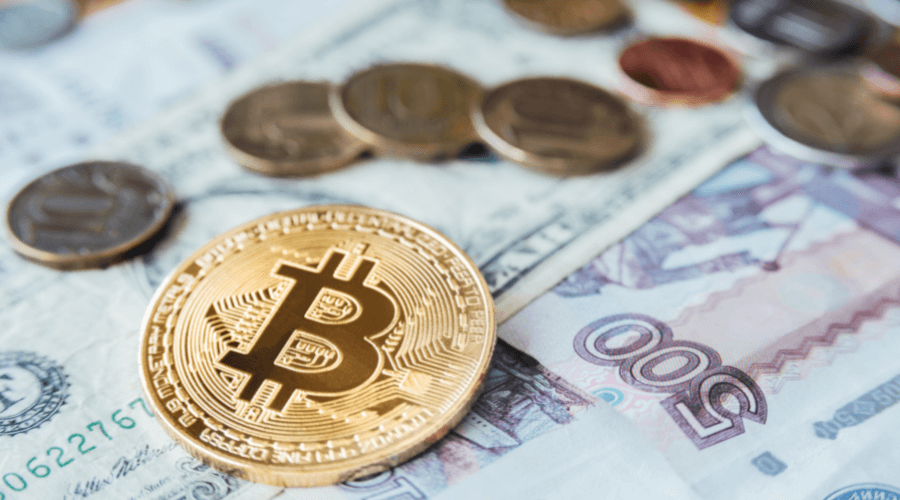Introduction: The Rise of DeFi in Kenya
Kenya has become one of the most active countries in Africa when it comes to digital finance. Over the last few years, more people have started to explore DeFi Kenya – decentralized finance built on blockchain technology. Unlike traditional banking, DeFi gives users direct control over their money. There are no middlemen, long queues, or complex paperwork. Everything happens through smart contracts and transparent blockchain systems.
This rise in decentralized finance is not random. Kenya already has a strong digital culture. Mobile payments such as M-Pesa changed how people send and receive money. Now, blockchain and crypto technologies are taking the next step. With blockchain Kenya infrastructure growing, new projects are helping individuals and small businesses manage, borrow, and invest in new ways.
Platforms like Trade Vector AI are bringing financial innovation closer to everyday Kenyans. Using artificial intelligence and blockchain data, they help users make smarter investment decisions and understand market trends. This combination of DeFi and AI allows investors to explore opportunities in areas like stablecoin investing Kenya and ethereum Kenya applications safely and efficiently.
The global crypto movement is transforming, and Kenya is keeping up. Thousands of users are already experimenting with peer-to-peer lending, staking, and decentralized exchanges. As more Kenyans learn to invest crypto Kenya through reliable platforms, the country is becoming a true hub for financial innovation in Africa.
DeFi is no longer just a buzzword in Kenya – it’s a practical solution for people who want financial freedom, better transparency, and new income opportunities without relying on traditional banks.
Understanding DeFi: From Concept to Kenyan Reality
To understand how DeFi Kenya works, it’s important to know what decentralized finance means. In simple terms, DeFi is a financial system that runs on blockchain — a secure digital ledger. Instead of relying on banks or brokers, people use smart contracts, which are computer programs that automatically process transactions.
In Kenya, DeFi is growing because it gives more people access to financial tools. Many citizens still do not have traditional bank accounts, but almost everyone owns a mobile phone. Through blockchain Kenya applications, users can borrow, lend, save, or invest with just a few clicks. This means more financial inclusion and freedom for ordinary people.
One of the most popular blockchains for DeFi is Ethereum. It powers thousands of decentralized apps, or dApps, that help users trade, earn interest, and manage assets without banks. The use of ethereum Kenya is expanding as local developers build smart contracts that connect with local payment systems like M-Pesa.
For example, a small business owner in Nairobi can use a DeFi platform to get a loan using crypto as collateral. They don’t need to visit a bank or fill out forms. A smart contract automatically checks the collateral, approves the loan, and sends funds directly to their wallet. This process is faster, cheaper, and more transparent.
Benefits of DeFi for Kenya
- Access: Anyone with a smartphone and internet can join the DeFi ecosystem.
- Low cost: Transactions are cheaper than traditional bank fees.
- Transparency: Every operation is recorded on the blockchain.
- Innovation: Local startups can build their own DeFi apps and connect to global networks.
Platforms such as Trade Vector AI make DeFi even easier by analyzing data and trends using artificial intelligence. They help users identify safer ways to invest crypto Kenya and find opportunities in stablecoin investing Kenya. This technology brings complex financial tools to ordinary Kenyans in a simple, accessible way.
DeFi in Kenya is not just a concept — it is already changing how people think about money, investment, and opportunity.
Blockchain Infrastructure in Kenya: Foundation of a Digital Economy
The success of DeFi Kenya depends on strong blockchain infrastructure. In recent years, Kenya has made big steps toward building a digital economy. Local developers, startups, and universities are exploring how blockchain Kenya can make finance, agriculture, and government services more transparent and efficient.
Kenya’s blockchain ecosystem is expanding fast. There are blockchain hubs in Nairobi and Mombasa, educational programs that teach blockchain development, and pilot projects supported by the government. These initiatives make it easier for DeFi platforms to grow and attract investors.
Examples of Blockchain Use in Kenya
| Sector | Use of Blockchain | Impact |
| Finance | DeFi apps, ethereum Kenya smart contracts | Faster loans, lower transaction costs |
| Agriculture | Tracking food supply chains | Improved transparency and pricing |
| Land Registry | Blockchain-based property records | Reduced fraud and disputes |
Projects like the Blockchain Association of Kenya are helping create legal frameworks and training programs. At the same time, startups are experimenting with KES pegged crypto — stable digital coins linked to the Kenyan shilling. These coins allow people to make payments and transfers without worrying about currency fluctuations.
With mobile money already part of everyday life, the shift to blockchain-based transactions feels natural. By integrating M-Pesa with blockchain wallets, users can move between fiat and crypto easily. This flexibility helps more people trust DeFi solutions.
Platforms such as Trade Vector AI are also contributing to the ecosystem by helping investors understand how to use blockchain tools safely. Their AI-driven insights guide users on when and how to invest crypto Kenya while minimizing risks.
Kenya’s blockchain infrastructure is becoming the backbone of a new, more open financial system — one where anyone can participate and grow.
Stablecoin Investing and KES-Pegged Crypto: Bridging the Gap
One of the biggest challenges for many crypto users is price volatility. That’s where stablecoins come in. A stablecoin is a digital currency that keeps its value by being linked to a stable asset like the US dollar — or in Kenya’s case, the Kenyan shilling. This is called KES pegged crypto.
In the context of DeFi Kenya, stablecoins play a key role. They help users trade, save, and make payments without worrying about sudden price changes. For example, if you earn money in stablecoins, the value won’t drop overnight like Bitcoin or Ethereum might.
Platforms that focus on stablecoin investing Kenya are growing quickly. They allow users to earn interest, lend money, and even make cross-border payments in a fast and secure way. For local traders and freelancers who work with international clients, stablecoins are a safer and more practical choice.
Why Stablecoins Matter in Kenya
- Protection from volatility: Stablecoins keep value stable, which helps users plan and save.
- Faster payments: Sending stablecoins across borders takes minutes instead of days.
- Financial inclusion: People without bank accounts can store value digitally.
- Integration: Easy to use with mobile money services and DeFi wallets.
A good example is the creation of tokens that mirror the Kenyan shilling. With KES pegged crypto, users can transfer funds between M-Pesa and crypto wallets instantly. This technology reduces conversion costs and makes digital currency more practical for daily use.
Trade Vector AI supports investors by analyzing trends in stablecoin markets and identifying opportunities for safe returns. With AI-powered tools, even beginners can learn when and how to invest crypto Kenya in stable, reliable assets.
Stablecoins are helping bridge the gap between traditional money and the new digital economy, giving Kenyans more stability and control over their finances.
The Role of Ethereum and Smart Contracts in Kenyan DeFi
Most DeFi Kenya projects run on Ethereum — the world’s leading blockchain for decentralized applications. What makes Ethereum powerful are smart contracts. These are digital agreements that automatically execute once certain conditions are met. They remove the need for banks, lawyers, or middlemen.
In Kenya, the use of ethereum Kenya is increasing as more developers and startups build DeFi solutions for local markets. Smart contracts can manage lending, payments, and insurance automatically. For example, a farmer can receive an insurance payout through a smart contract if rainfall levels drop below a set limit. The entire process happens transparently on the blockchain.
Ethereum also enables decentralized exchanges, or DEXs, where users trade crypto directly with each other. This approach is ideal for countries like Kenya, where access to global financial platforms is often limited. With DEXs, users can easily buy or sell crypto without going through banks or high-fee exchanges.
Advantages of Smart Contracts
- Automation: No need for human approval or processing delays.
- Transparency: Every contract is recorded on the public blockchain.
- Security: Once deployed, smart contracts cannot be changed or tampered with.
- Cost reduction: Fewer intermediaries mean lower transaction fees.
Developers are also exploring cheaper, faster versions of Ethereum known as Layer 2 solutions. These reduce transaction costs, making DeFi tools more affordable for Kenyan users. Platforms like Trade Vector AI integrate Ethereum-based analytics to help users track DeFi opportunities, compare yields, and decide how to invest crypto Kenya safely.
By combining Ethereum’s flexibility with Kenya’s growing blockchain talent, DeFi is becoming a real alternative to traditional banking and a driver for digital innovation.
Key Use Cases of DeFi in Kenya
The rise of DeFi Kenya is not just about technology. It’s about solving real problems people face every day. From sending money to getting loans, decentralized finance is transforming how Kenyans handle money. Below are some of the main areas where DeFi is making a difference.
1. Microloans and Peer-to-Peer Lending
Access to credit is one of the biggest challenges for small business owners in Kenya. DeFi platforms built on blockchain Kenya are changing that. Through smart contracts, borrowers and lenders connect directly without banks. The process is fast, transparent, and requires no paperwork.
For example, a trader in Kisumu can borrow funds using crypto as collateral. The loan is approved by an automated contract and transferred instantly. Repayment terms are clear, and everything is recorded on the blockchain for security. This helps small entrepreneurs grow their businesses with fewer barriers.
2. Savings and Staking
Many Kenyans are now using DeFi platforms to earn passive income. By staking crypto — locking it into a protocol — users receive rewards or interest. Platforms like Trade Vector AI guide users in finding reliable staking pools and tracking returns safely. This approach encourages long-term financial planning and helps more people learn how to invest crypto Kenya.
3. Cross-Border Payments
Traditional international transfers can take days and cost high fees. DeFi makes it possible to send money abroad in minutes. Using stablecoin investing Kenya and KES pegged crypto, users can transfer funds between Kenya, Nigeria, and even Europe without middlemen. This is especially useful for families and freelancers working with clients overseas.
4. Crowdfunding and Tokenized Investment
New startups in Kenya are using DeFi platforms for fundraising. Instead of going through traditional venture capital, they issue tokens to early investors. These tokens represent a share or future benefit in the project. It’s a fairer, more inclusive way to support innovation.
5. Decentralized Insurance and Risk Sharing
In rural Kenya, farmers face risks like drought and crop loss. DeFi-based insurance platforms use smart contracts to pay compensation automatically when conditions are met, such as weather data. This reduces fraud, speeds up payouts, and gives farmers financial security.
- Faster access to funds for micro and small businesses.
- Lower fees for cross-border transfers and remittances.
- New income streams through staking and tokenized investment.
- Better transparency in loans and insurance claims.
DeFi in Kenya is already improving people’s lives. It empowers individuals, supports small businesses, and opens the door to financial opportunities that were once limited to banks and large institutions.
Regulatory Landscape and Challenges
The growth of DeFi Kenya has caught the attention of regulators. The Central Bank of Kenya and other financial authorities are still exploring how to manage this fast-changing space. While blockchain Kenya brings transparency and innovation, it also raises questions about security, taxation, and consumer protection.
Currently, Kenya does not have specific laws that fully regulate DeFi or cryptocurrencies. The government has warned about the risks of investing in digital assets but has also recognized the potential benefits. This cautious approach allows innovation to continue while discussions about proper regulation move forward.
Main Challenges
- Lack of clear regulation: Many DeFi and crypto businesses operate in a legal gray area, which can discourage big investors.
- Security risks: Users need to be careful about scams and poorly designed smart contracts.
- Education gap: Many people still don’t understand how blockchain or crypto works, which leads to misuse or loss of funds.
- Volatility: Even with stablecoin investing Kenya, the wider crypto market can still affect stability.
Despite these issues, Kenya’s government has shown growing interest in digital innovation. The Kenya Blockchain Taskforce was formed to study how blockchain can improve governance and financial systems. Their research supports the idea that DeFi Kenya could drive inclusion and economic growth if supported by smart policy.
Platforms like Trade Vector AI play a positive role by encouraging safe investing habits and sharing educational resources. They help users understand the risks of invest crypto Kenya while exploring legitimate opportunities. As regulation evolves, such platforms could become bridges between the public and policymakers.
Clear, balanced regulation will be key to making DeFi secure and sustainable in Kenya, allowing innovation to grow while protecting everyday users.
Economic and Social Impact of DeFi in Kenya
The influence of DeFi Kenya goes far beyond technology. It is creating real economic and social change. In a country where millions of people have limited access to banks, decentralized finance gives them tools to save, borrow, and invest on their own terms.
One of the biggest benefits of blockchain Kenya is financial inclusion. With just a mobile phone, anyone can open a digital wallet and join the global economy. This makes it easier for small business owners, farmers, and young professionals to manage their money. They no longer depend entirely on traditional banks, which often charge high fees or require strict documents.
In rural areas, DeFi platforms are helping cooperatives and local groups manage community funds transparently. Smart contracts make sure every transaction is visible to all members, reducing corruption and increasing trust. This transparency builds stronger financial communities.
From an economic perspective, invest crypto Kenya has opened new opportunities. More Kenyans are using DeFi to earn through staking, liquidity pools, and stablecoin savings. These tools offer better returns than many traditional savings accounts. As a result, DeFi contributes to a culture of investment and digital literacy.
How DeFi Benefits Society
- Job creation: The rise of DeFi startups, blockchain developers, and AI-based platforms like Trade Vector AI is generating new employment opportunities.
- Education and awareness: Training programs and online communities are teaching young people how to use DeFi tools responsibly.
- Empowerment: Women and youth, often excluded from traditional finance, are finding independence through digital investments.
- Transparency in aid and charity: NGOs can track donations using blockchain, ensuring funds reach their intended recipients.
The social transformation is visible. People are moving from being passive users of money to active participants in financial systems. By combining stablecoin investing Kenya and smart tools like Trade Vector AI, citizens can manage risks and plan for the future.
DeFi is not just changing how Kenyans move money — it’s changing how they think about opportunity, trust, and growth.
Future of DeFi and Blockchain in Kenya
The future of DeFi Kenya looks bright. Every year, more developers, investors, and policymakers recognize the value of blockchain technology. Kenya is quickly becoming a center for financial innovation in Africa, with new startups building decentralized apps and solutions for local needs.
One major trend is the growing focus on KES pegged crypto. These digital coins linked to the Kenyan shilling could become a foundation for a national digital currency. Such tools would make everyday transactions faster, safer, and more transparent. Combined with mobile payment systems, they could completely change how people manage their finances.
The use of ethereum Kenya will likely expand further. Developers are creating more efficient smart contracts and integrating them into agricultural, energy, and education systems. These improvements make blockchain more than a financial tool — it becomes part of everyday life.
AI-driven platforms like Trade Vector AI are expected to play a bigger role. By analyzing blockchain data and predicting trends, they can help users make smarter investment decisions and minimize risks. This is essential as more Kenyans learn how to invest crypto Kenya responsibly.
In the coming years, Kenya could become one of Africa’s leaders in decentralized finance — a country where blockchain helps build trust, stability, and opportunity for all.
Conclusion
The story of DeFi Kenya is just beginning, but its impact is already clear. Decentralized finance is giving people more control over their money and more ways to build wealth. With growing support from local developers, entrepreneurs, and communities, Kenya is becoming a true leader in Africa’s digital finance revolution.
Thanks to blockchain Kenya and smart technologies like ethereum Kenya, financial services are becoming faster, cheaper, and more transparent. Whether it’s sending money abroad, earning through stablecoin investing Kenya, or funding small businesses, blockchain is opening new doors for millions of Kenyans.
Platforms such as Trade Vector AI show how artificial intelligence and DeFi can work together to create a safer, smarter investment environment. By analyzing data and predicting trends, these tools help users make informed decisions and learn how to invest crypto Kenya with confidence.
The journey ahead will bring new challenges — especially around education, regulation, and cybersecurity. But Kenya’s progress so far proves that innovation and inclusion can go hand in hand. With continued investment and awareness, DeFi can become a foundation for fairer and more accessible finance across Africa.
DeFi is not just changing technology — it’s changing lives. And Kenya stands at the center of this transformation, leading the way toward a digital, transparent, and inclusive financial future.



































